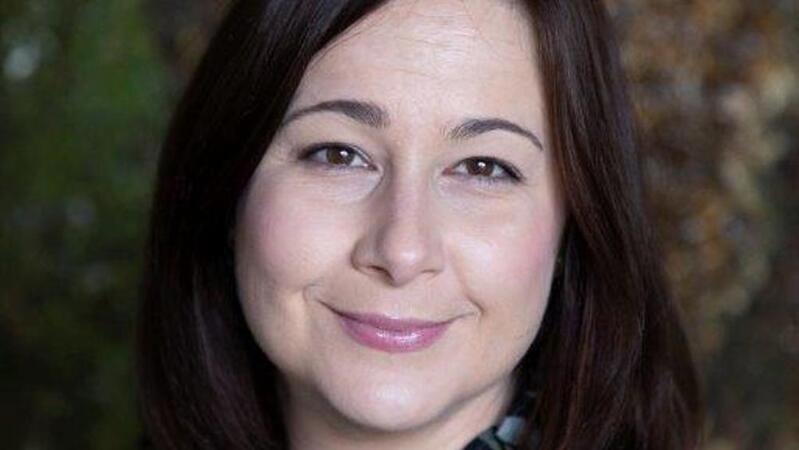People, not resources
Emma Locke, Head of HR at Perfetti Van Melle, on trust, allyship and why respect must sit at the heart of leadership

When speaking to Emma Locke, Head of HR at confectionery maker Perfetti Van Melle, you notice how often she comes back to people. “Humans are humans,” she says simply. “HR mustn’t reduce them to resources.”
It is a philosophy shaped by a career that has seen her move through sectors as varied as retail—she worked for one of the ‘Dragons’ Peter Jones, which she describes as fascinating and a “very different culture to anything”— a high security mental health hospital where she was asked, fresh out of university, how she felt about being approached by the patients (she recalls being “quite unfazed by it”), and has since moved through telecoms, oil and gas, and now the world of sweets and gum.
What has kept Locke working in HR across these diverse settings, she suggests, is the chance to influence how people experience work and ensure respect sits at the heart of leadership.
Leadership that Puts People First
Perhaps it was being raised by a single parent and navigating challenges like hearing loss that confirmed her view that employees need to be seen, supported, and valued. Or, an intellectual curiosity sharpened by her academic leanings, “I wanted to do my PHD but my mother said go and get a job!” she laughs. Either way, Locke seems able to recognise the subtleties of workplace culture and behaviour more acutely than most.
At Perfetti Van Melle, Locke has helped build a people-first culture rooted in listening, clear communication, and engagement. She used the Great Place to Work accreditation to drive real change, turning feedback into initiatives and reinforcing progress through campaigns, events and leadership forums.
She often circles back to questions of trust, allyship and how individuals feel within an organisation. Reflecting on today’s workplace challenges: hybrid working, shifting employee expectations, and the need to support carers and parents, Locke says, “We’re not just employing someone to do a job. We’re employing the whole person, with all the responsibilities and pressures they carry with them.”
Trust, she says, is built when employees know they can speak up and when managers are willing to hear them. “It’s important that people feel they’re not alone, that they’re still part of the community even if they’re going through illness or something at home.”
Allyship and Privilege
Locke is especially passionate about allyship at work, the active practice of standing beside those who might otherwise be unheard and who’s experiences you might not know or understand first-hand. She points to tennis star Andy Murray as a model. “I love that Andy Murray champions his female peers, standing up for women in tennis… and the rest of us too,” she says.
For her, privilege carries responsibility. Leaders, she argues, should use their influence to open doors for others. “It’s about noticing who’s not in the room and asking why.”
Facing the Future
If she could change one aspect of workplace culture across industry, Locke doesn’t hesitate, “I’d ensure that every leader treated people as individuals. Not just numbers on a spreadsheet. Recognise the diversity in your teams, invest in your people managers, and remember that mental health matters just as much as physical health.”
Locke reflects on her own journey through hearing loss. “When I was at BP that I met a colleague through an accessibility employee resource group who was having a cochlear implant and her and I subsequently became friends. Having that connection with somebody who experienced similar things to me was really important. But going through that journey, I was so isolated. Was I operating at my best? Well, probably not. Of course, I would have told you, ‘I’m fine’. I wasn’t fine.”
She stresses that it doesn’t take grand gestures. “You can make someone’s day better just by treating them with dignity,” she says. “That’s all people want, to be valued as human beings.”
And what about the encroaching impact of artificial intelligence on the workplace? Locke is mindful about both opportunity and risk. “AI is just email on absolute steroids,” she quips. Innovation may be inevitable, but ethics, she insists, must not be left behind.
She believes tomorrow’s leaders will need three qualities in particular – courage, technological fluency, and a moral compass. “We need leaders who will say, ‘This isn’t right,’” she argues. “The world is moving at a frightening pace. Courage and ethics are what will stop us losing sight of humanity.”
Looking ahead, she sees technology reshaping work in both challenging and exciting ways, with HR needing to keep up with AI and automation while also embracing the opportunities they create for greater accessibility and personalised employee support. She emphasises, “The next chapter of D&I must be braver, broader and more honest, linking wellbeing, mental health and the complexity of family life”.
Perfetti Van Melle’s UK Commercial Managing Director, Rob Lockley, earns praise from Locke as a people-first leader. But she wants to see such an inclusive approach spread far beyond confectionery. “If more organisations built people-centric cultures, Mondays wouldn’t be something to dread. We’d enjoy coming to work.”
For Locke, the future of work does not depend on systems or slogans but the ability for leaders to be credible. “Whilst there’s that trust equation, the lovely way academics explain it,” she says, “I think for me it’s doing what you say you will.”
 Amy Assad
Amy Assad